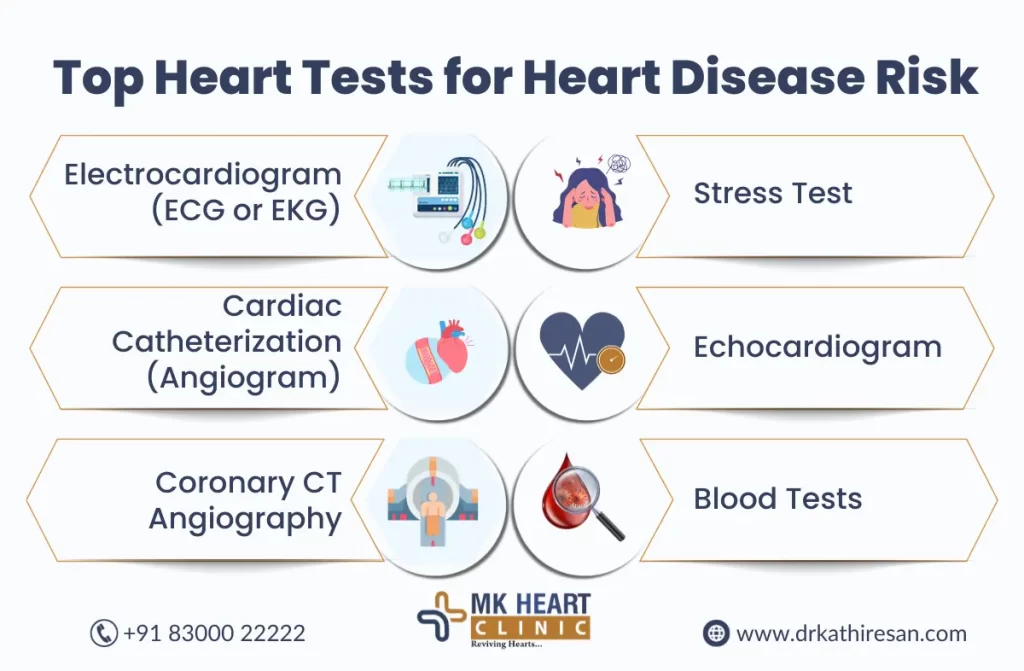Preventive Measures for Heart Attack is a pervasive and potentially life-threatening condition that affects millions of people around the world. It encompasses a range of disorders, including coronary artery disease, heart attacks, and congestive heart failure. The good news is that many of these conditions are largely preventable through a combination of lifestyle choices and medical interventions.
In this blog post, we will explore the importance of taking preventive measures for heart disease. We will discuss various strategies, from maintaining a healthy diet to regular exercise, stress management, and medical check-ups. By the end of this article, you’ll have a clear understanding of how to protect your heart and reduce the risk of heart disease.

A Heart-Healthy Diet
The food we eat plays a significant role in our overall health, especially in the context of Preventive Measures For Heart Attack. Preventive measures for heart disease start with a heart-healthy diet. Incorporating the right nutrients into your daily meals can significantly reduce the risk of heart attacks. Here are several dietary recommendations to take into account:
- Reduce Saturated Fat and Trans Fat: Foods high in saturated and trans fats, such as fried and processed foods, can raise your cholesterol levels, increasing the risk of heart disease. opt for healthier fats like those found in avocados, nuts, and olive oil.
- Increase Fibre Intake: Foods rich in soluble fibre, like fruits, vegetables, and whole grains, can help lower cholesterol and maintain healthy blood pressure.
- Limit Sodium Intake: Consuming too much salt can lead to high blood pressure. Reducing your sodium intake by avoiding excessively salty foods can help maintain heart health.
- Eat More Fatty Fish: Fish like salmon, mackerel, and trout are rich in omega-3 fatty acids, which can help reduce the risk of heart disease.
Regular Exercise
Exercise is another crucial element of preventive measures for heart attack. Engaging in consistent physical activity not only aids in weight management but also enhances heart strength and promotes overall cardiovascular well-being. Here’s how you can make exercise a part of your heart-healthy lifestyle:
- Aerobic Exercise: Engage in aerobic activities like brisk walking, jogging, swimming, or cycling for at least 150 minutes per week.
- Strength Training: Include strength training exercises at least two days a week to build muscle and boost your metabolism.
- Stay Active Throughout the Day: In addition to planned exercise, try to incorporate physical activity into your daily routine. Take the stairs instead of the elevator, walk short distances instead of driving, and stand up and move around if you have a sedentary job.
Stress Management
Chronic stress can have a detrimental impact on heart health, making effective stress management an essential part of preventive measures for heart disease. High-stress levels can lead to unhealthy behaviours, such as overeating, smoking, or excessive alcohol consumption.
- Stay Connected: Building and maintaining strong social connections can provide emotional support and help you cope with stress.
- Set Realistic Goals: Avoid overloading your schedule with tasks and responsibilities. Establish realistic objectives and give precedence to what holds the greatest significance.
- Participate in Pleasurable Pastimes: Dedicate time to engaging in hobbies and activities that bring you joy. These can act as a beneficial means of relieving stress.
- Regular Medical Check-ups: Regular medical check-ups are crucial for identifying risk factors for heart disease and also preventive measures for heart attack. So, take appropriate preventive measures. Your healthcare provider can help you monitor your health and suggest necessary lifestyle changes or medications to reduce your risk.
- Monitoring Blood Pressure: Elevated blood pressure poses a substantial risk in the development of heart disease. Regular monitoring and management of blood pressure can be life-saving.
- Cholesterol Screening: A cholesterol check can identify high levels of “bad” cholesterol (LDL) and low levels of “good” cholesterol (HDL), which are associated with heart disease risk.
- Diabetes Screening: People with diabetes are at a higher risk of heart disease. Regular screenings and effective management of diabetes can mitigate this risk.
- Weight Management: Preventive Measures for Heart Attack emphasize that maintaining a healthy weight is essential for heart health. Your healthcare provider can help you set and achieve weight management goals to reduce your risk of heart attacks and other cardiovascular issues.
Preventive Measures for Heart Attack
Preventive measures for heart attacks include maintaining a healthy diet, regular exercise, managing weight, quitting smoking, limiting alcohol, stress management, blood pressure control, diabetes management, cholesterol control, and medication compliance. Stay hydrated, get adequate sleep, and recognize heart attack symptoms for immediate medical attention. Consult a healthcare provider for personalized guidance.
Conclusion
Preventive measures for heart attacks are a cornerstone of maintaining good health and longevity. By adopting a heart-healthy diet, incorporating regular exercise into your routine, managing stress effectively, and scheduling regular medical check-ups, you can significantly reduce the risk of heart attacks and other heart-related conditions.


